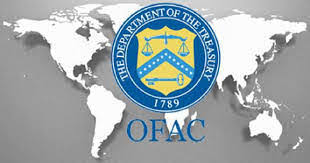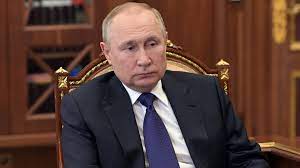DOJ Enforcement and Compliance with the New Russian Sanctions

The Department of Justice has announced its plan to aggressively enforce the new Russia Sanctions Program. In response to the dire humanitarian situation in the Ukraine, DOJ took two significant actions – creation of the KleptoCapture Task Force and a commitment to enforcement of the Russia sanctions and export control. DOJ’s second statement of intent is significant.
DOJ’s record of criminal enforcement of prior sanctions program have been primarily directed against individuals involved in circumventing the Iran Sanctions Program. In the last two years, however, DOJ has expanded its sanctions and export control program to prosecute companies involved in violating sanctions against North Korea. Last year, in a significant action, DOJ prosecuted SAP for a multi-year set of violations of the Iran Sanctions Program. Although the resolution involved a non-prosecution agreement, the SAP prosecution represented a turning point since it included detailed requirements relating to SAP’s remediation of its compliance program.
Companies have been whipsawed by the recent Russia Sanctions Program given almost daily changes to the Unitec States program, along with coordinated steps by Allies and partners around the globe. Trade compliance professionals are under enormous stress and justifiably so.
Compounding the difficulties in this era of day-to-day trade compliance events, the Department of Commerce Bureau of Industry and Security has been implementing changes to its Denied Parties List and adjusting licensing requirements to prohibit a range of Russian exports, along with the expansion of its foreign product rule and jurisdiction to match a broad assertion of enforcement akin to the tools used in constricting global business with Huawei. Also, BIOS has promised to implement regulations restricting global exports of technology, equipment and software to Russia used in the energy refining industry. This latter requirement could be the beginning of restrictions against the oil and gas industry.

The United States, Allies and partners have implemented an unprecedented global response to Russia’s destructive activities. The most significant step, by far, has been the freezing of Russia’s foreign assets and currency around the globe. This is the most daring step taken because of the financial repercussions. President Putin never expected this action since he built up foreign reserves in anticipation of a global sanctions response. Whether Russia can weather this action remains to be seen but from a policy and tactical standpoint the United States, Allies and partners have placed enormous pressure on Russia.
In response to the horrific images and suffering in Ukraine, the global community is facing demands to end imports of Russia’s energy products. Such a step, if taken, raises serious issues for members of the EU since they are so dependent on Russian energy.
Trade compliance professionals should pay close attention to gradual steps in this area. The BIS regulations concerning energy refining will be an important indication of just how far the United States and its Allies will be willing to go in restricting Russia’s energy business.

In the meantime, financial institutions, money service business and payment providers are faced with enormous compliance challenges in navigating the current set of Russia Sanctions, especially the correspondent banking and payable through account limitations. Every “whiteboard” in these companies has to be filled with diagrams of payment or receipt steps breaking down transactions to ensure that no violations occur.
This effort has to be conducted carefully given the high stakes involved. No global company wants to be painted by any law enforcement agency as facilitating illegal transactions that in the end that increase or maintain the tragic suffering of the Ukrainian people.
















1 Response
[…] Source link […]